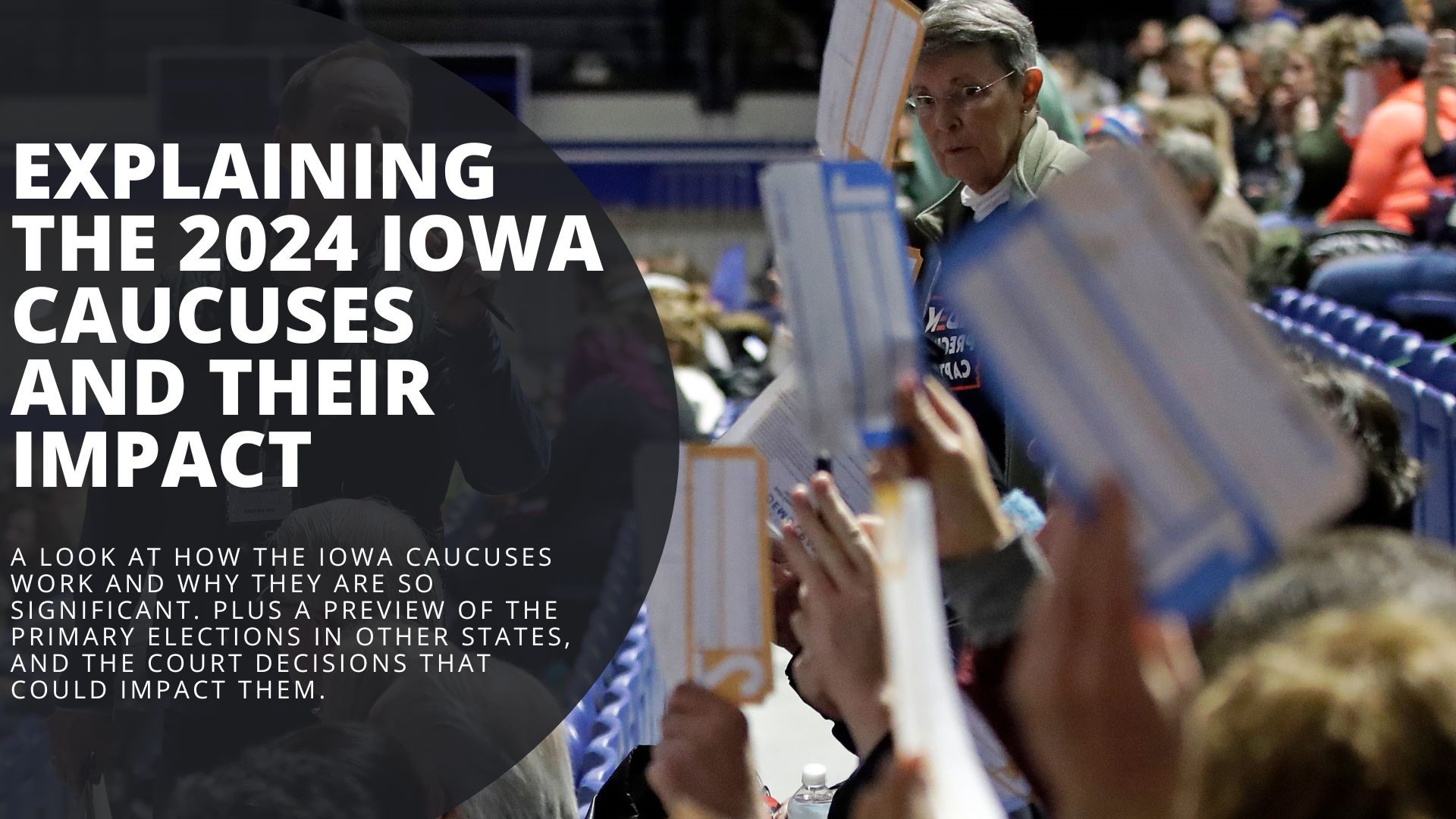WASHINGTON — After months of campaigning, the Republican candidates vying to unseat President Joe Biden in November face their first formal test at the ballot box in the Iowa caucuses.
For Republicans, there are usually two prizes in the Iowa caucuses: delegates and bragging rights. Iowa Republican voters will indicate their picks for the party’s presidential nominee, and the results of that vote will determine how many of the state’s 40 convention delegates each candidate will receive. Candidates win national convention delegates in direct proportion to the percentage of the vote they receive. There is no minimum threshold required to qualify for delegates.
However, Iowa makes up a minuscule share of the total number of Republican delegates nationwide (only 1.6%). So, in theory, a candidate who performs poorly in Iowa has plenty of opportunities in the remaining states and territories to more than make up the difference.
How many delegates does a candidate need to win the nomination?
A candidate must get the majority of their party's delegates to win the nomination.
For Republicans, a candidate needs at least 1,215 out of 2,429 delegates to win the nomination.
For Democrats, a candidate needs 1,969 out of about 3,900 delegates to win the nomination.
What is a delegate?
In the context of presidential elections, delegates are individuals who represent their state or community at their party’s presidential nominating convention. These delegates choose a presidential candidate to represent the national party in the November general election. They also approve the party’s platform and adopt rules governing the party. Delegates tend to be party insiders or activists or early supporters of a particular presidential candidate.

